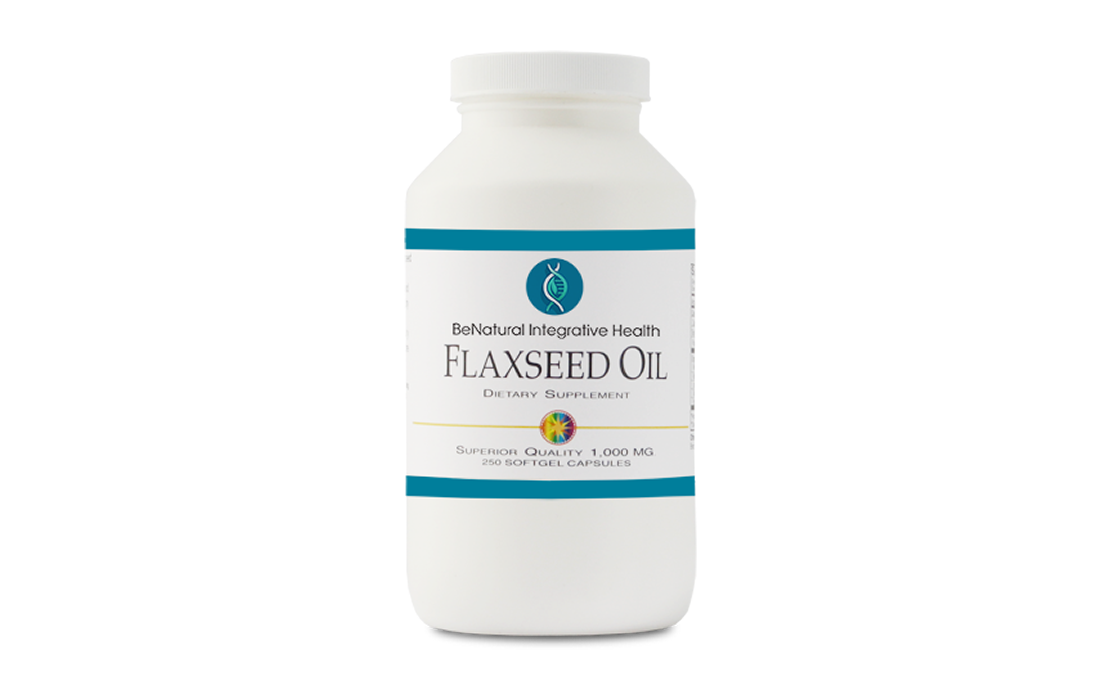Nutrition and Supplements
What are the Health Benefits of Flaxseed Oil?
What is Flaxseed Oil?
Flaxseed (Linum usitatissimum) and flaxseed oil, which comes from flaxseed, are rich sources of the essential fatty acid alpha-linolenic acid, a heart healthy omega-3 fatty acid. Flaxseed is high in soluble fiber and in lignans, which contain phytoestrogens. Similar to the hormone estrogen, phytoestrogens might have anti-cancer properties.
Humans have used flaxseed oil for thousands of years, and it has a variety of health benefits. Manufacturers extract flaxseed oil from flaxseeds and people can use the oil for cooking and baking.
Flaxseed oil is commercially available in both capsule and liquid form. It contains a type of omega-3 fatty acid called alpha-linolenic acid (ALA). The body uses ALA from flaxseed oil and converts it in small amounts to other fatty acids, including docosahexaenoic acid and eicosapentaenoic acid.
What Health Benefits Does it Have?
Some of the benefits of flaxseed oil include:
High in Omega-3 Fatty Acids
One tablespoon (15 ml) contains an impressive 7,196 mg of omega-3 fatty acids. Specifically, flaxseed oil contains alpha linolenic acid (ALA) which is converted to active forms of omega-3, like EPA and DHA.
A tablespoon of flaxseed oil can meet and exceed your daily needs of ALA, which are at least 1,600 mg daily for men and 1,100 mg for women according to most guidelines.
Reducing Cholesterol
The ALA in flaxseed oil might play a role in decreasing low-density lipoprotein (LDL) or bad cholesterol.
In one small study involving 15 individuals, the participants consumed either flaxseed oil or corn oil once per day with dinner. Researchers measured their cholesterol levels at the start of the study and after 12 weeks and found that those who consumed the corn oil had no change in their cholesterol levels, while those who consumed the flaxseed oil had a significant decrease in LDL.
Fighting Cancer
Flaxseed oil may help fight certain types of cancer. Although much more research is needed to draw a definite conclusion, some animal studies are encouraging.
One study on mice with lung tumors found that those that consumed a 10 percent flaxseed diet had fewer tumors compared with those in the control group.
One literature review indicates that in animal studies, the fatty acid in flaxseed oil may suppress breast tumor size and growth, as well as promote cancer cell death.
Another animal study, mice were given 0.3 ml of flaxseed oil for 40 days. It was found to prevent the spread of cancer and the growth of lung tumors. Still, while these findings are promising, more research is needed to determine how these results may translate to humans.
Reduce Inflammation
Some research shows that flaxseed oil may help reduce inflammation in certain populations. An animal study found that flaxseed oil has potent anti-inflammatory properties and another study found that it can reduce levels of C-reactive protein in obese people. This protein is used to measure inflammation.
Reduced Diabetes Risk
Studies have shown that it may help reduce risk of diabetes. A study involving 25 individuals who had prediabetes and who were either women experiencing menopause or men who were overweight consumed. They consumed either 13 grams of flaxseed daily for 12 weeks. Researchers found that those who consumed 13 g had a decreased blood sugar level.
Improve Skin Health
Many people who use flaxseed oil topically or internally report that it greatly improves the quality of their skin and some studies have suggested that as well.
One small study had 13 women supplement with flaxseed oil for 12 weeks. At the end of the study, they experienced improvements in skin smoothness and hydration, while skin sensitivity to irritation and roughness had decreased.
Another study in which mice with dermatitis were given flaxseed oil for three weeks. The oil was shown to decrease symptoms of atopic dermatitis, such as redness, swelling and itching.
How to Use Flaxseed Oil?
It can be used by adding it to your diet with minimal effort. It can be added into smoothies or shakes, salad dressings, dips and sauces.
In addition to being used in food, it can also be applied directly to the skin to enhance skin health and increase moisture.
Flaxseed oil is also available as a supplement in a capsule form and is considered to be safe to take when taken in recommended amounts. If you want to enjoy the incredible benefits of this supplement. You can get yours today:
https://www.benaturalmednutrition.com/product/flaxseed-oil/
Sources:
MaryAnn De Pietro, CRT. (2018, Nov 20) What are the benefits of flaxseed oil? Medical News Today. Retrieved from: https://www.medicalnewstoday.com/articles/323745
Rachel Link, MS. (2017, Sep 29) 6 Benefits of Flaxseed Oil-Plus How to Use It. Healthline. Retrieved from: https://www.healthline.com/nutrition/flaxseed-oil-benefits
https://www.mayoclinic.org/drugs-supplements-flaxseed-and-flaxseed-oil/art-20366457

